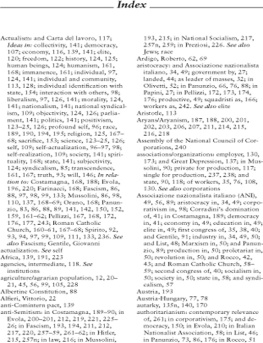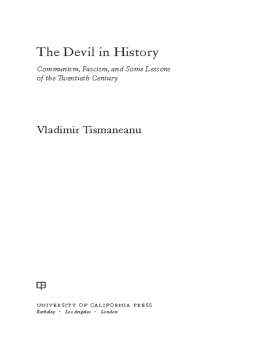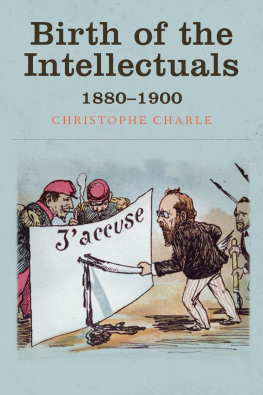The Reckless Mind
The Reckless Mind
Intellectuals in Politics
With a New Afterword
Mark Lilla
NEW YORK REVIEW BOOKS

New York
THIS IS A NEW YORK REVIEW BOOK
PUBLISHED BY THE NEW YORK REVIEW OF BOOKS
435 Hudson Street, New York, NY 10014
www.nyrb.com
Copyright 2001, 2016 by NYREV, Inc.
All rights reserved.
Cover design by Katy Homans
Cover image: detail of Jacques-Louis David, The Death of Socrates, 1787. Oil on canvas, 51 x 77 in. (129.5 x 196.2 cm). Catharine Lorillard Wolfe Collection, Wolfe Fund, 1931 (31.45).
Image copyright The Metropolitan Museum of Art.
Image source: Art Resource, NY
The Library of Congress has cataloged the hardcover edition as follows:
Lilla, Mark.
The reckless mind : intellectuals in politics / by Mark Lilla.
p. cm.
ISBN 0-940322-76-5 (hardcover : alk. paper)
1. IntellectualsEuropeHistory20th century. 2. EuropeIntellectual life20th century. 3. TotalitarianismHistory20th century. I. Title.
HM728.L55 2001
305.5'52'094dc21
2001001857
ISBN 978-1-68137-117-7
v1.0
For a complete list of titles, visit www.nyrb.com or write to: Catalog Requests, NYRB, 435 Hudson Street, New York, NY 10014
For Daniel Bell
Contents
PREFACE
Jaimerais mieux la lecture des vies particulires pour commencer ltude du coeur humain.
Rousseau
Each life converges to some center.
Emily Dickinson
IN 1953 THE Polish poet Czesaw Miosz, then unknown in the West, published The Captive Mind, a study of how intellectuals in postwar Poland were conforming to the Stalinist orthodoxies of dialectical materialism and socialist realism. The cold war was at its peak when the book appeared, earning it much attention and translation into several languages. Yet The Captive Mind was no mere cold war pamphlet. It remains a moving and disturbing book to this day, not least because Miosz chose to dwell on ordinary cases rather than the most extreme ones. Writers who suffered physical intimidation or prison do not appear in his pages, nor do the commissars and satraps who hounded them. Miosz instead sketched portraits of four rather successful writers, describing in detail their intellectual and political wanderings in pre-war Poland (usually on the nationalist and anti-Semitic right), their war experiences (often heroic), and their adjustment to the Communist regime imposed by the Soviet Union. In each case Miosz fixed upon an aspect of the writers character that revealed itself early on in life and showed how it shaped his later writing and shifting political engagements. We meet Alpha, the moralist; Beta, the nihilist whose nihilism results from an ethical passion, from disappointed love of the world; Gamma, the slave of history; and finally the poet Delta, the troubadour. The sketches can be read as documents of a dark historical moment, but what makes them memorable is their insight into the depths of human psychology. Miosz did not moralize, nor did he present himself as omniscient about the course of history. (After the war he too had seen hope for his country in communism and served the Polish government as cultural attach in Washington and Paris until 1951, when he sought asylum in the West.) His aim was to show, by example, what happens when certain characters, certain kinds of minds, are thrust into the whirlwind of politics.
Mioszs sketches are humbling. But they are also puzzling. History dealt a bad hand to thinkers and writers who lived behind the Iron Curtain; some played it well, resisting the tyrants bribes and threats as best they could, others joined the chorus. Those of us who have never faced such choices are poorly placed to judge what they did. But how are we to explain the fact that a chorus for tyranny also existed in countries where intellectuals faced no danger and were free to write as they pleased? What possibly could have induced them to justify the actions of modern tyrants or, as was more common, to deny any essential difference between tyranny and the free societies of the West? Fascist and Communist regimes were welcomed with open arms by many West European intellectuals throughout the twentieth century, as were countless national liberation movements that instantly became traditional tyrannies, bringing misery to unfortunate peoples across the globe. Throughout the century Western liberal democracy was portrayed in diabolical terms as the real home of tyrannythe tyranny of capital, of imperialism, of bourgeois conformity, of metaphysics, of power, even of language. The facts were rarely in dispute; they were apparent to anyone who read the newspapers and had a sense of moral proportion. No, something deeper was at work in the minds of these European intellectuals, something reckless. How do such minds operate? we wonder. And what are they seeking in politics?
This book attempts to address these questions and can be read as a modest companion to The Captive Mind. It is not a systematic treatise, since what it has to say can best be learned by studying intellectual and political lives in concrete historical situations. A great deal was written in the last century about intellectual responsibility, a senseless term, and about the question whether a thinkers thought can be separated from the political uses to which he puts it. This has always seemed to me une question mal pose. At one level, the answer must be yes: the truth of Euclids proofs is not affected by how he may have treated his servants. But grownups know that serious thinkers writing about serious matters are not engaged in geometric parlor games; they are writing out of the deepest wells of their experiences as they try to orient themselves in the world. Their works and their activities, including their political activities, are traces left by this quest. If we are on similar journeys, we owe it to ourselves to reflect upon what they did and why.
Any number of twentieth-century European thinkers might have been selected as subjects for philosophical-political profiles. I have chosen to focus on some whose thought is still alive for us in this century, in the hope that readers will come away convinced that the problems addressed here did not evaporate in 1989. The fact that so many admirers of these thinkers continue to ignore or justify their political recklessness was an added consideration. I have chosen thinkers on both sides of the Rhine, and on both the ideological left and right, to show that the phenomenon they represent is not limited to one nation or political tendency. As for the lessons one might draw from these sketches, they are examined in the afterword, which readers are encouraged to consider after touring this gallery.
A final word on the thinkers discussed here. It is not my intention in these critical profiles to offer readers an excuse for dismissing these figures as somehow beyond the pale of decency. Quite the contrary: I myself have been drawn to them and over the years have learned from their works. But as I learned from them, my sense of disappointment only grew, a disappointment I found best expressed in a short notebook entry made by Karl Jaspers propos of Martin Heidegger and other German thinkers who welcomed the arrival of tyranny in 1933. His sentiment is my own.
Despite my distance from them I feel affection for these mendifferent kinds of affection since they are so different from each other. But this affection never develops into love. Its as if I want to implore them to place the loftiness of their minds in the service of better powers. Greatness of mind becomes an object of love only when the power at work in it itself has a noble character.














